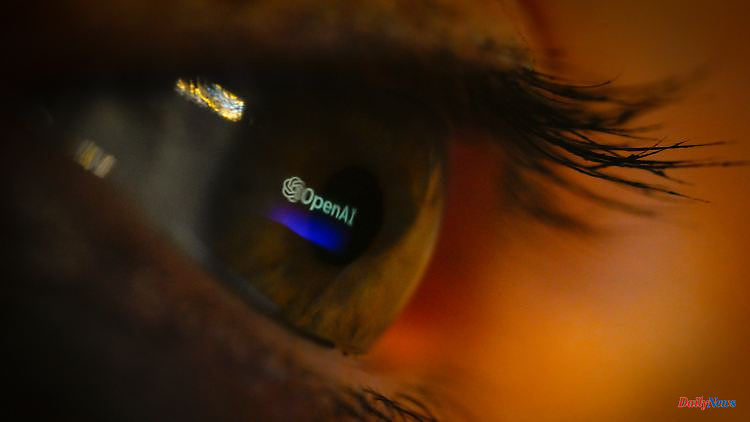With the hype surrounding ChatGPT, the focus is on the competitors of the powerful US tech companies. The Heidelberg-based company Aleph Alpha dares to compare its AI language model with those of OpenAI and the Facebook group Meta - and according to its own statements, can keep up.
In a standardized performance comparison with its Luminous AI language model, the Baden-Württemberg start-up company Aleph Alpha did just as well as the previously leading AI specialist OpenAI or the model of the Facebook group Meta. Aleph Alpha used the neutral test method "Evaluation Harness" from the open scientific and developer community EleutherAI for the comparison test. The test included tasks on classifying, evaluating and creating texts, as well as answering questions about specific text content, Aleph Alpha said.
With Luminous, for the first time, a European AI language model has landed on a par with the American tech giants, explained Jonas Andrulis, founder and CEO of Aleph Alpha. You have not only reached the level of performance, but have also been much more efficient. Compared to the competition, Luminous has about half as many (70 billion) parameters and is therefore twice as efficient at the same level of performance.
"Luminous is a strong alternative in many environments and thus an important step towards Europe's technological sovereignty," emphasized Andrulis. OpenAI has been in the headlines with its text robot ChatGPT for weeks because many millions of users can try out the AI application. The Californian startup is extensively supported by Microsoft. The software group announced in early February that it would integrate ChatGPT into its own search engine Bing in order to compete with market leader Google. Google itself wants to counter with its own AI language models.
The Heidelberg startup Aleph Alpha, on the other hand, does not offer a mass product for private consumers, also because it cannot afford to process millions of inquiries every day. Experts assume that each request to ChatGPT costs around 5 cents in computing power. Large sums quickly accumulate, which Microsoft pays for OpenAI.
In any case, it is part of the company founder Andruli's strategy to concentrate on solutions for companies or public administration. In October 2022, for example, the "Lumi" citizen assistant for the city of Heidelberg, which is based on Luminous, went into operation. The system is able to respond to very individual, non-preprogrammed questions from citizens. In this way, the information can also be made accessible to people who used to have problems communicating with authorities due to poor spelling or other language problems.












